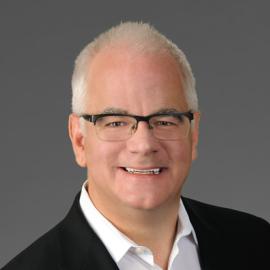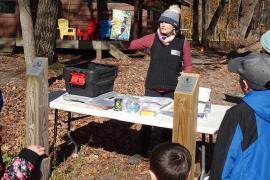“The real act of, say, building a friendship or creating a community involves performing a series of small, concrete social actions well: disagreeing without poisoning the relationship; revealing vulnerability at the appropriate pace; being a good listener; knowing how to end a conversation gracefully; knowing how to ask for and offer forgiveness; knowing how to let someone down without breaking their heart; knowing how to sit with someone who is suffering; knowing how to host a gathering where everyone feels embraced; knowing how to see things from another’s point of view.”
– David Brooks

Congratulations on a successful 2024 camp season. I hope this issue of Camping Magazine finds you well and recuperating after an excellent summer. I recently read David Brooks’s new book, How to Know a Person: The Art of Seeing Others Deeply and Being Deeply Seen, in which he challenges us to set aside our sense of self and look beyond other people’s superficialities to really get to know them. I admire Brooks for his honesty and thoughtful insights. I find myself aligned with his idealism in that we all can and should make time to improve the quality of human connections in our lives. In a time when our nation is fraught with rising depression, suicide, and polarization, this book is timely. I also know that this book will resonate with camp professionals, as it encourages us to lean into innovating camp programming and training around social connection, empathy, curiosity, cooperation, effective communications, collaboration, and fostering optimism.
Immersive camp experiences that are free from technological distraction and where campers and young staff can have a measure of independence from their parents are fruitful environments in which to learn to appreciate the diversity of personalities and create a deep sense of belonging.
In How to Know a Person, Brooks categorizes people as either diminishers or illuminators. Diminishers make people feel small and unseen, are often self-involved, use other people as tools, and often judge others in stereotypical ways. By contrast, illuminators are persistently curious about others in positive ways and lift people up and make them feel respected, seen, and important (Brooks, 2023).
So, what are effective ways to foster camp staff cultures that inspire illuminator staff and, in turn, cultivate illuminator camper communities? For starters, it helps when camps can limit use of cell phones and personal devices so everyone can more immersively focus on human skills. When a community is undistracted by social media, it creates space for vulnerable rapport, sharing feelings, and more compassion, which helps you really know someone. Social media creates an illusion of social connection with someone without having to invest in the interpersonal efforts that build trust, care, and affection. And on social media people tend to feel free to judge and diminish each other without empathy or authenticity.
Through creative programming and positive leadership, camp communities cultivate greater understanding of campers’ and staffs’ diverse cultures and backgrounds, helping them to see the world through each other’s eyes and to have empathy for one another’s struggles and challenges. Genuinely connecting and authentically acknowledging the realities of others’ situations with love and respect helps you figure out why a person might be experiencing particular emotions. We learn to understand that what others may need is often different from our own needs. Through happy days at camp, everyone works to care for and trust one another by being honest, vulnerable, dependable, and respectful of one another. And by extending ourselves to serve and know each other at camp, we begin to foster our own identity, values, and life purpose in transformative ways.
Reference
Brooks, D. A. (2023). How to know a person: The art of seeing others deeply and being deeply seen. New York, NY: Random House.

